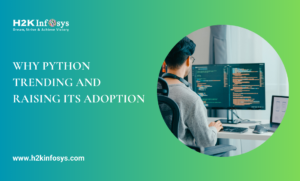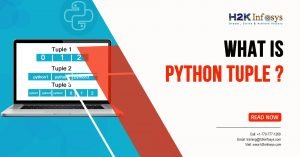If you’ve made the decision to become a software or web developer, learning to code will undoubtedly present some challenges. Choosing which computer language to learn as your python first programming language is often the most important one.
Choosing a programming language for the first time is really important. This language will be used to provide your first coding instructions! Making the wrong decision could result in a loss of interest or time. Choosing your first programming language requires careful consideration of a number of factors.
The first is the language’s complexity and learning curve. A Low-level Programming Language is not something I would personally suggest as a first programming language. “You should learn Assembler Language or C; those are the basis of programming,” some people would advise you. That’s true; the learning curve for those two languages is really steep, but they are interesting! You might struggle with registers or pointers for hours on end.
And after that, the syntax! It should go as smoothly as possible when you read and write your first lines of code. You do not want to search through your code for hours on end for a missing bracket or parenthesis.
And finally, the significance. A specific-purpose programming language is not something I advise learning to program in the beginning. For example, you could learn HTML, SQL, or even PIC. Nevertheless, those programming languages are restricted to certain jobs. You ought to be able to code practically anything using your first programming language!
Have you thought about learning Python programming? If you have, then I strongly recommend you check out our Python free course online.
Python as a First Programming Language
Here’s why Python is the perfect option for beginners.
To begin with, Python is incredibly simple to learn and write! Beginners will find it easier to learn and create code with Python due to its straightforward and accessible syntax.
It’s really simple, isn’t it? There are no extra parentheses, brackets, or semicolons in Python syntax. Few lines of code can perform complex operations. It should be noted that indentation is required. This prevents confusing “spaghetti” code by requiring empty spaces or tabs to start each inner block of code (function, loop, etc.).
I must also stress how fantastic the Python community is! Python programmers are sociable and willing to impart their knowledge. Check out PYPI, the official Python repository, where you can find nearly 500,000 free libraries and packages! NUMPY is a well-known Python module that data scientists use to clean and work with large amounts of data. Thanks to the tremendous work of numerous Python developers, NumPy has become an essential tool for Python data research.
Also, the Python community is eager to help beginners. Don’t hesitate to ask for help if you need it, or if you are having trouble understanding certain Python code! Programmers of various skill levels frequently use collaborative sites like Stack Overflow. Take a look at THIS – over two million queries and solutions specific to Python! Also, you may find groups with thousands of Python engineers to interact with on social media sites like Facebook, LinkedIn, or Discord, where you can also seek assistance.
And then there is the versatility of Python. Python is a versatile programming language that can be used for a wide range of jobs, including web development, web scraping, data analysis, machine learning, scripting, automation, financial computations, and even desktop application and game creation! Python is essentially the Swiss army knife of programming languages, so learning it is a worthwhile goal. And it’s used by nearly all major tech companies!
And finally, the salary. Everything I just mentioned makes sense, but how much do Python developers get paid? The national average salary for a Python developer in the US is $116,847 per year, according to ZipRecruiter. Also, Python provides a wide range of job options, including those as a web developer, ethical hacker, data scientist, cybersecurity specialist, and game developer. You may even work as your most humble servant, a blogger or technical writer.
Conclusion I sincerely hope I was able to convince you to take up Python as your first programming language and begin your coding adventure. You will succeed if you practice consistently and have a positive attitude! If you are ready to begin your journey in learning Python, there is a perfect place for you. All you have to do is to check out the best Python course available online.
























